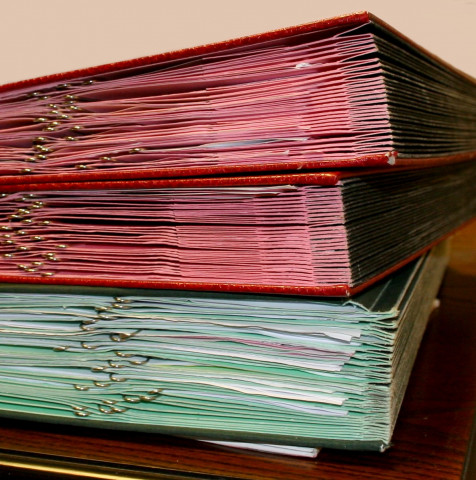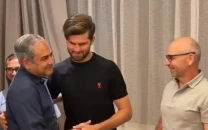Can voice-to-type clear out Pakistan’s judicial backlog?
At least one judge in Punjab thinks so, having used the technology to record statements with up to 90% accuracy

PHOTO:FILE
Claiming his results displayed near perfect accuracy, he now wants the rest of the country’s judicial system to follow suit.
In a letter he wrote to the Lahore High Court, civil judge Asim Hafeez Chaudhry of Sialkot’s Sambrial Tehsil said he had recently adopted Google’s online voice-to-type application to record evidence and dictate orders in both English and Urdu.
He claimed that using the technology, he was able to record statements and orders with more than 90% per cent accuracy at speeds ranging between 90 to 100 words a minute.
“Keeping in view the bulk of the workload upon the courts … I am of the view that in case modern technology is used for recording of evidence, dictation of orders and preparation of various documents in the judicial proceedings, the speed of court work may be enhanced to an optimum level with maximum accuracy and clarity in the documents,” Chaudhry wrote in his letter.
Backlog of cases in SC rises to 40,254
He argued that using voice-to-type could enhance courts’ capacity to record evidence and orders and ensure that a lack of competency on the part of any stenographer does not become a hurdle for judicial work. The judge noted that the technology is very easy to operate and pointed out that almost judges of Punjab’s district judiciary already have laptops provided by the LHC.
“Therefore, I submit my idea of using the Google voice typing tool in judicial proceedings for control of workload upon the courts and very humbly submit that same may kindly be recommended for use in judicial proceedings for dictation,” he concluded in a letter.
Chaudhry was later invited to give a presentation on his use of Google’s voice-to-type tool to LHC Justice Attar Mahmood, who is said to have appreciated the idea.
Talking to The Express Tribune, Additional Advocate General Qasim Chohan also appreciated civil judge’s efforts. “Such technologies are being used by all over the world,” he noted.
Former LHC judge Mudhassir Khalid Abbasi said there is no legal obstacle to prevent use of voice-to-type technology in court cases. He claimed that accuracy could be increased to 100 per cent if new plugins compatible with local English accents were used.
Full court recommends e-court system to reduce backlog
Currently, court statements are either recorded by judges themselves or by stenographers. According to an estimate, there are some 1.9 million cases pending in Pakistani courts – over 40,000 in the Supreme Court and more than 1.14 million in the district judiciary.out Pakistan’s judicial backlog?



















COMMENTS
Comments are moderated and generally will be posted if they are on-topic and not abusive.
For more information, please see our Comments FAQ